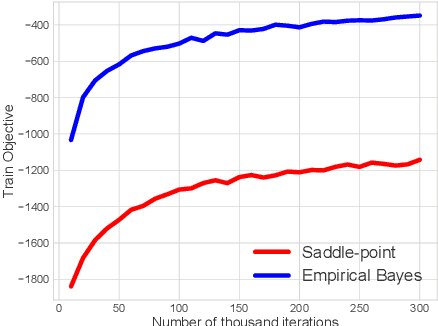Learning Correlated Latent Representations with Adaptive Priors
Paper and Code
Jul 16, 2019

Variational Auto-Encoders (VAEs) have been widely applied for learning compact low-dimensional latent representations for high-dimensional data. When the correlation structure among data points is available, previous work proposed Correlated Variational Auto-Encoders (CVAEs) which employ a structured mixture model as prior and a structured variational posterior for each mixture component to enforce the learned latent representations to follow the same correlation structure. However, as we demonstrate in this paper, such a choice can not guarantee that CVAEs can capture all of the correlations. Furthermore, it prevents us from obtaining a tractable joint and marginal variational distribution. To address these issues, we propose Adaptive Correlated Variational Auto-Encoders (ACVAEs), which apply an adaptive prior distribution that can be adjusted during training, and learn a tractable joint distribution via a saddle-point optimization procedure. Its tractable form also enables further refinement with belief propagation. Experimental results on two real datasets show that ACVAEs outperform other benchmarks significantly.
 Add to Chrome
Add to Chrome Add to Firefox
Add to Firefox Add to Edge
Add to Edge